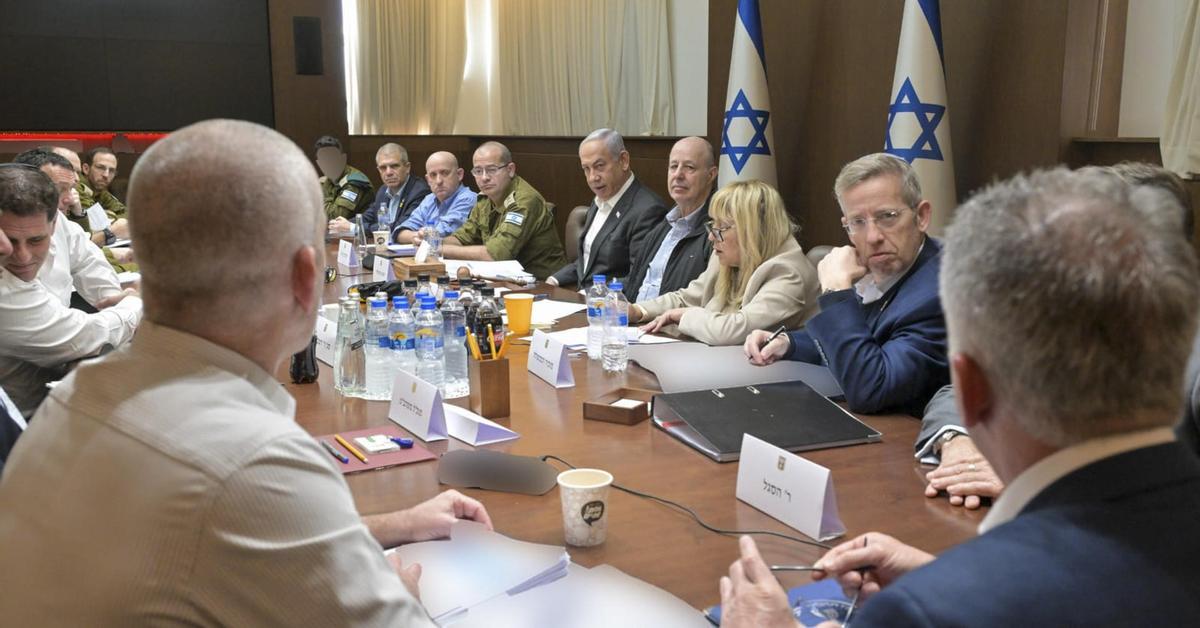
It was the last political obstacle that was missing. After a meeting of more than five hours, the Government of Israel approved this Saturday morning the ceasefire agreement and exchange of hostages for prisoners with Hamas, as a way to end a massacre of more than 46,000 people in Gaza.
“The Government (of Israel) has approved the framework for the return of the hostages (…) it will come into effect on Sunday, January 19, 2025,” the Prime Minister’s Office said in a statement.
As indicated by Qatar, which has been the main mediator in the negotiations, it will come into force this Sunday at 7:30 a.m. (8:30 a.m. in Palestine). “As coordinated by the parties to the agreement and the mediators, the ceasefire in the Gaza Strip will begin at 8:30 on Sunday, January 19, local Gaza time,” said the spokesman for the Qatari Ministry of Foreign Affairs. , Majed al Ansari, in a message on X.
The agreement was put on the table last Wednesday, but a vote by the cabinet of Israeli Prime Minister Benjamin Netanyahu was needed for it to become firm, which took place this morning.
The Government voted to approve the ceasefire agreement, this after the security cabinet gave its blessing to the agreement on Friday.
At the moment there is no statement to the press after the vote, in which local media report that 24 ministers voted in favor and eight against.
According to The Times of Israel, the eight ministers who opposed the agreement are David Amsalem and Amichai Chikli, from the Likud party; Itamar Ben Gvir, Yitzhak Wasserlauf and Amichai Eliyahu, of Otzma Yehudit, and Bezalel Smotrich, Orit Strock and Ofir Sofer, of the Party of Religious Zionism.
The agreement will enter into force at noon on Sunday, January 19, with a first phase that will extend for a period of 42 days in which the green light will be given for the entry of humanitarian aid and fuel to the entire Gaza Strip and the rehabilitation of hospitals.
In this first phase, Hamas will release a total of 33 Israeli hostages in exchange for Israel’s release of an unspecified number of Palestinian prisoners.
During the development of these actions, the parties will specify the details of a second and third phase.
On January 14, United States Secretary of State Antony Blinken announced that he will deliver to the next Donald Trump Administration a post-war plan for the Gaza Strip, which includes a unitary government with the West Bank supervised by the international community.
Under this proposal, the international community will help the Palestinian National Authority (PNA) to “establish an interim government” in Gaza with responsibility for access to water, energy and health, elected by popular “consultation” and which will end up delivering the power to a “reformed ANP as soon as possible,” Blinken detailed.
After the military takeover of Rafah on May 7, Israel controls all access points to Gaza, a Palestinian enclave governed ‘de facto’ by Hamas since 2007 and where in just over 15 months of war more than 47,800 people have died and nearly More than 90% of the population has been forced to leave their homes.
Source: www.eldiario.es

